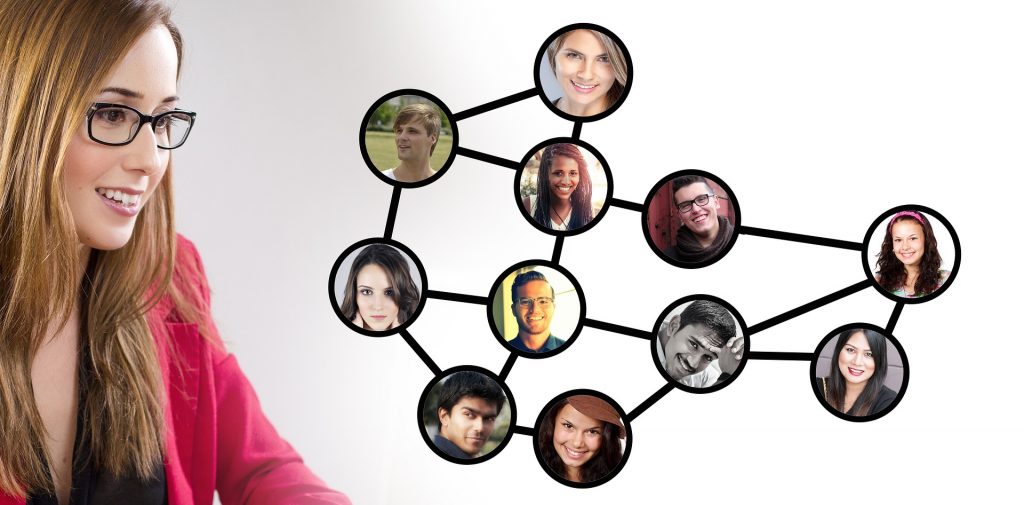The world’s greatest success stories have been borne out of collaboration. Some of the finest ricerca has been made possible because of researchers working with each other, some of the biggest companies have reached new heights by encouraging knowledge sharing within the industry, and of course, some brilliant innovations come from academia-industry partnerships.
Every successful business is supported by a strong research backbone. Subject matter experts allow businesses to gain a knowledge advantage over their competitors, whereas scienza dei dati experts help them take the right decisions. On the other hand, every researcher needs his/her work to be of value to the real world. Industry insights help academics make sure their work is useful, up-to-date and relevant. It is imperative then, judging by this close interlinking of the two, that businesses and academia be easily accessible to each other.
Tuttavia, la verità è che c'è molta meno interazione tra accademici, università e industrie al giorno d'oggi. Il networking è ancora in gran parte limitato a conferenze, eventi e incontri di persona. Mentre vari fattori ostacolano la collaborazione, come le barriere geografiche e finanziarie, una delle più grandi barriere è trovare il partner giusto con la giusta specialità.
Kolabtree.com è un passo verso il rendere il ricco pool (oltre 4000 e in aumento!) di leader accademici altamente qualificati ed esperti accessibile a livello globale, su richiesta. Offre un talento specializzato che non può essere trovato da nessun'altra parte.
Collaborazione per i ricercatori

Le ragioni per cui i ricercatori hanno bisogno di collaborare sono molte e varie. La collaborazione non deve necessariamente essere tra due persone che svolgono attivamente la ricerca, può anche coinvolgere una persona che offre consigli e intuizioni generali. A seconda del livello del contributo, il ricercatore può anche essere indicato come collaboratore o co-autore.
I ricercatori spesso hanno bisogno di competenze o di assistenza tecnica che vanno oltre l'ambito delle loro capacità, conoscenze e servizi di laboratorio. Considera questo esempio:
“A chemist developing a nanotube to deliver a drug that will regulate the expression of a gene to prevent the growth of cancer cells or to kill existing cells has many technical problems to solve. The main problem is creating the nanostructure that has the intelligence to respond to the changes in the cellular mileu. That researcher does not necessarily have the expertise to understand what impact the technology he or she is developing will have on the recipient. If the government says in a grant application that special attention will be given to a grant that looks at the social effects of medical nanotechnology, a multidisciplinary collaboration between the chemist and a social scientist might be born.”
It is not uncommon for researchers to get ‘stuck’ when their experiments fail to produce the required outcome. More often than not, researchers require support in a particular subject for only a fixed period of time. Hiring a remote freelancer for a specific task not only provides the opportunity for labs, universities and industries to get on-demand specialist talent but is also cost-effective. For example, un laboratorio di ricerca digitale negli Stati Uniti che esegue un'analisi dei dati visivi can now have a Computer Vision ricercatore si unisca a loro da qualsiasi parte del mondo.
Kolabtree offers access to experts in various subjects ranging from scienze della vita a statistiche to experimental design, who can provide insights, identify problems and offer solutions. The advantages are manifold – it not only helps avoid misleading interpretations and achieve accurate results, but it also saves time, effort, energy and cost.
Un altro motivo di preoccupazione è il drammatico calo dei fondi per la ricerca scientifica. Secondo un Telegrafo articolo published in 2010, the UK is a world leader in scientific research, but is spending only “0.55 per cent of GDP on research and development, compared to Germany’s 0.71 per cent, France’s 0.81 per cent and the USA’s 0.77 per cent”. Funding is also becoming increasingly competitive, limiting the scope of research. Allowing access to and encouraging collaboration among academia can prove beneficial in this situation.
I ricercatori in una specifica area tematica spesso hanno bisogno di approfondimenti non solo da quelli del loro settore, ma anche dai ricercatori di altre aree tematiche. La ricerca interdisciplinare sta guadagnando sempre più importanza, come evidenziato da Natura, che sottolinea che il la frazione di riferimenti cartacei che puntano a lavori in altre discipline è aumentata su un periodo di 50 anni. Un biologo può avere bisogno di un matematico per studiare i suoi risultati. Un microbiologo che produce biocarburante potrebbe aver bisogno di un ingegnere meccanico per misurarne le prestazioni in un motore. Una startup in India potrebbe aver bisogno di un esperto in materia dalla California, un biologo in Australia potrebbe aver bisogno dell'aiuto di uno scienziato in Germania per modellare i dati. Kolabtree facilita la condivisione delle conoscenze, rompendo le barriere geografiche, permettendo anche agli individui e agli esperti di fissare un budget per ogni progetto.
Un articolo pubblicato in Natura last year says that “the leading edge of scientific discovery is now in the realm of international collaboration networks rather than individuals, institutions or nations.” Research, especially between emerging countries and established countries, helps both of them gain valuable insights that might not be possible within their own geographical boundaries. Co-authorship between institutions is slowly gaining popularity. And one things stands clear: “che la collaborazione sia volontaria o assolutamente necessaria, essa si traduce comunque in una ricerca ad alto impatto."
Collaborazione per le imprese
Va da sé che la ricerca è il cuore pulsante di ogni impresa. Le imprese non possono fare a meno degli esperti in materia. Molte conoscenze si trovano al di fuori della portata delle industrie, di solito nei laboratori universitari. Ed è sempre più necessario che le industrie e il mondo accademico collaborino e beneficino reciprocamente delle partnership.
Scienza | Citazioni di business Carlos Härtel, responsabile della tecnologia e dell'innovazione presso il GE Global Research Center-Europe, ha dichiarato che le aziende dovrebbero avere la "disponibilità a collaborare con chi ha il know-how e le risorse umane", alla conferenza Transnational Research Access in the Macroregion della regione del Mar Baltico (Baltic TRAM) tenutasi il mese scorso.
Le partnership tra l'industria e il mondo accademico si verificano spesso con aziende più grandi e consolidate. In uno studio pubblicato su Elseviertroviamo che le prime 20 istituzioni per gli accordi farmaceutici sono università ben consolidate. Qui stiamo parlando solo di mega-partnership a cui possono accedere aziende come AstraZeneca e GSK. Le industrie più piccole potrebbero non essere in grado di permettersi o persino conoscere i servizi di ricerca di cui possono usufruire.
Elisabeth Reimer Rasmussen di Medtronic Danimarca ha recentemente formato una collaborazione con Julie Grew, a PhD student from the University of Copenhagen. She says that even though the company was not actively seeking to hire someone to perform anthropological analyses, “Grew’s fresh perspective has already changed thinking about patient satisfaction.” This reinforces the fact that collaboration is healthy, and that two (or more) heads are better than one!
Kolabtree permette alle piccole e medie imprese di accedere alle competenze scientifiche, che le aiutano a prendere decisioni più informate e ad offrire soluzioni migliori. Offre al personale accademico e industriale di interagire su base individuale, permettendo loro di accedere alla conoscenza senza dover compromettere i loro bilanci così come le politiche.
La collaborazione è la via da seguire
L'innovazione aperta beneficia tutte le parti, and is becoming the need of the hour. Researchers collaborating across institutions and countries now have access to improved creativity, better techniques, deeper research, less risk, and higher publication chances. Academia-industry partnerships are also a win-win situation for everyone. While industries achieve greater success by having access to the latest research, academia in turn receive an enhanced reputation, funding opportunities and access to industry data. Since we’ve already established the importance of collaboration, it seems that the natural way forward is to encourage partnerships to allow for better decisions, better innovation and better progress.
